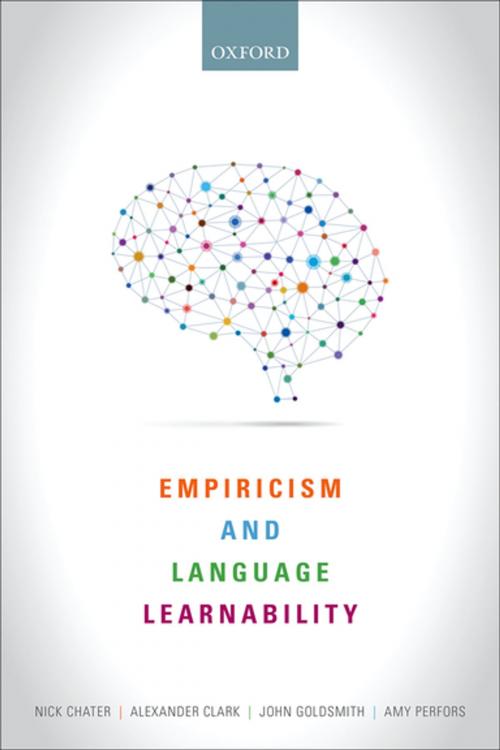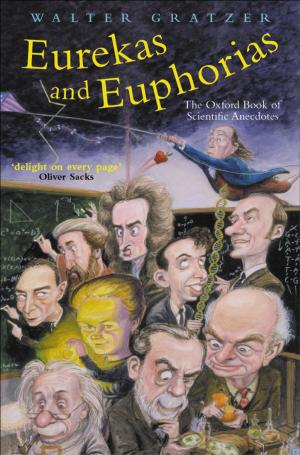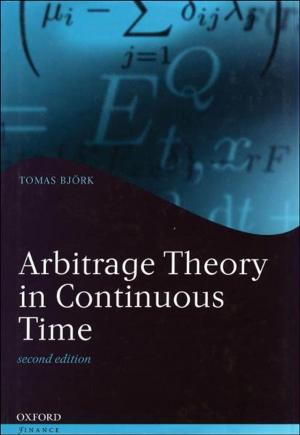Empiricism and Language Learnability
Nonfiction, Health & Well Being, Psychology, Cognitive Psychology, Reference & Language, Language Arts| Author: | Nick Chater, Alexander Clark, John A. Goldsmith, Amy Perfors | ISBN: | 9780191053597 |
| Publisher: | OUP Oxford | Publication: | July 9, 2015 |
| Imprint: | OUP Oxford | Language: | English |
| Author: | Nick Chater, Alexander Clark, John A. Goldsmith, Amy Perfors |
| ISBN: | 9780191053597 |
| Publisher: | OUP Oxford |
| Publication: | July 9, 2015 |
| Imprint: | OUP Oxford |
| Language: | English |
This interdisciplinary new work explores one of the central theoretical problems in linguistics: learnability. The authors, from different backgrounds—-linguistics, philosophy, computer science, psychology and cognitive science-explore the idea that language acquisition proceeds through general purpose learning mechanisms, an approach that is broadly empiricist both methodologically and psychologically. For many years, the empiricist approach has been taken to be unfeasible on practical and theoretical grounds. In the book, the authors present a variety of precisely specified mathematical and computational results that show that empiricist approaches can form a viable solution to the problem of language acquisition. It assumes limited technical background and explains the fundamental principles of probability, grammatical description and learning theory in an accessible and non-technical way. Different chapters address the problem of language acquisition using different assumptions: looking at the methodology of linguistic analysis using simplicity based criteria, using computational experiments on real corpora, using theoretical analysis using probabilistic learning theory, and looking at the computational problems involved in learning richly structured grammars. Written by four researchers in the full range of relevant fields: linguistics (John Goldsmith), psychology (Nick Chater), computer science (Alex Clark), and cognitive science (Amy Perfors), the book sheds light on the central problems of learnability and language, and traces their implications for key questions of theoretical linguistics and the study of language acquisition.
This interdisciplinary new work explores one of the central theoretical problems in linguistics: learnability. The authors, from different backgrounds—-linguistics, philosophy, computer science, psychology and cognitive science-explore the idea that language acquisition proceeds through general purpose learning mechanisms, an approach that is broadly empiricist both methodologically and psychologically. For many years, the empiricist approach has been taken to be unfeasible on practical and theoretical grounds. In the book, the authors present a variety of precisely specified mathematical and computational results that show that empiricist approaches can form a viable solution to the problem of language acquisition. It assumes limited technical background and explains the fundamental principles of probability, grammatical description and learning theory in an accessible and non-technical way. Different chapters address the problem of language acquisition using different assumptions: looking at the methodology of linguistic analysis using simplicity based criteria, using computational experiments on real corpora, using theoretical analysis using probabilistic learning theory, and looking at the computational problems involved in learning richly structured grammars. Written by four researchers in the full range of relevant fields: linguistics (John Goldsmith), psychology (Nick Chater), computer science (Alex Clark), and cognitive science (Amy Perfors), the book sheds light on the central problems of learnability and language, and traces their implications for key questions of theoretical linguistics and the study of language acquisition.















